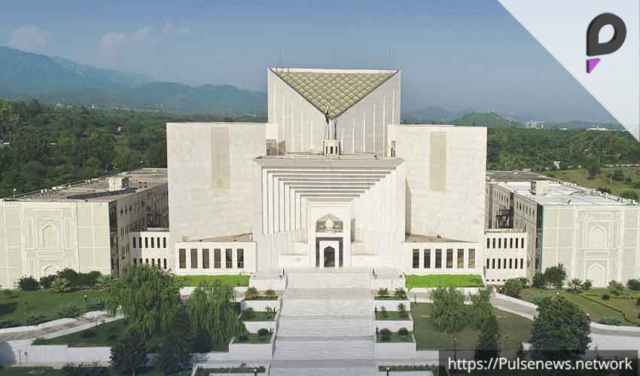Overview of the Case
Islamabad: On December 2, 2023, a constitutional bench of the Supreme Court (SC) of Pakistan convened to address the pressing issue of missing persons in the country. The bench, led by Justice Aminuddin Khan, issued notices to key figures, including the interior minister and the Attorney General of Pakistan (AGP), requesting comprehensive reports from relevant institutions. This step comes in response to a constitutional petition filed by former senator Aitzaz Ahsan in October 2023, challenging the ongoing practice of enforced disappearances in Pakistan.
Initially, the Supreme Court had returned Ahsan’s petition, deeming it an “individual grievance” rather than a matter of public importance. However, the gravity of the situation has prompted renewed scrutiny, leading to the current proceedings aimed at seeking accountability and resolution.
Court’s Inquiry and Legislative Suggestions
During the hearing, Justice Jamal Khan Mandokhel highlighted the importance of involving parliament in addressing the matter. He pointed out that the matter of missing persons is of immense public concern, affecting the lives of countless individuals and families. “The court has recognized parliament as supreme; parliament should prove itself to be supreme,” he stated, urging legislators to take decisive action.
The Deputy Attorney General, Javed Iqbal Younis, informed the court that the cabinet had recently discussed the issue and formed a sub-committee to draft recommendations aimed at addressing the crisis of missing persons. Despite these assurances, Justice Mandokhel underscored that mere rhetoric will not suffice to resolve this complex issue.
Commission on Enforced Disappearances
Justice Muhammad Ali Mazhar raised critical questions regarding the performance of the Commission on Enforced Disappearances, asking for the number of recoveries made to date. He highlighted the need for transparency, demanding to know how many individuals had been accounted for and the circumstances surrounding their disappearances.
Justice Mandokhel interjected with a pointed observation about the lack of forthcoming information from individuals who had returned from enforced disappearances. This led to discussions about the implications of these cases, with Justice Rizvi questioning the lack of clarity surrounding the identities of those responsible for such abductions.
Calls for Legislative Action
The bench discussed the possibility of calling a joint session of parliament to address the issue collectively. Advocate Latif Khosa raised the idea of resolving the matter akin to the 26th Constitutional Amendment, which prompted a discussion about the roles of different branches of government in addressing human rights violations.
Ahsan, representing the petitioners, contended that the parliament lacks judicial powers to enforce accountability. He argued for the necessity of a judicial mechanism to ensure the protection of citizens’ rights.
Experiences of Victims
Advocate Siddiqui highlighted the plight of families affected by enforced disappearances, noting that many loved ones have been missing for a decade or longer. He expressed concern about the inability of the court to locate a prior order related to missing persons, with Justice Rizvi humorously remarking that even the order itself seemed to have “gone missing.”
Justice Naeem Akhtar Afghan shared a disheartening anecdote about a previous case involving missing persons in Balochistan, where individuals returned home following court orders but never appeared in judicial forums to provide testimonies regarding their experiences.
The Role of Stakeholders
In closing, Justice Khan reiterated the court’s intention to pursue a solution to the missing persons issue. He urged stakeholders, including government officials, civil society, and families of the disappeared, to engage in constructive dialogue to identify the root causes of enforced disappearances.
Justice Mandokhel emphasized the importance of parliamentary action, urging lawmakers to take responsibility for addressing the deep-seated issues leading to this human rights crisis. As the hearing concluded, the court adjourned the case to the following week, leaving many hopeful for progress in addressing this longstanding issue in Pakistan.
The ongoing discussions reflect the broader struggle for human rights and the rule of law in the country, underscoring the urgent need for accountability and effective governance to prevent further disappearances.











